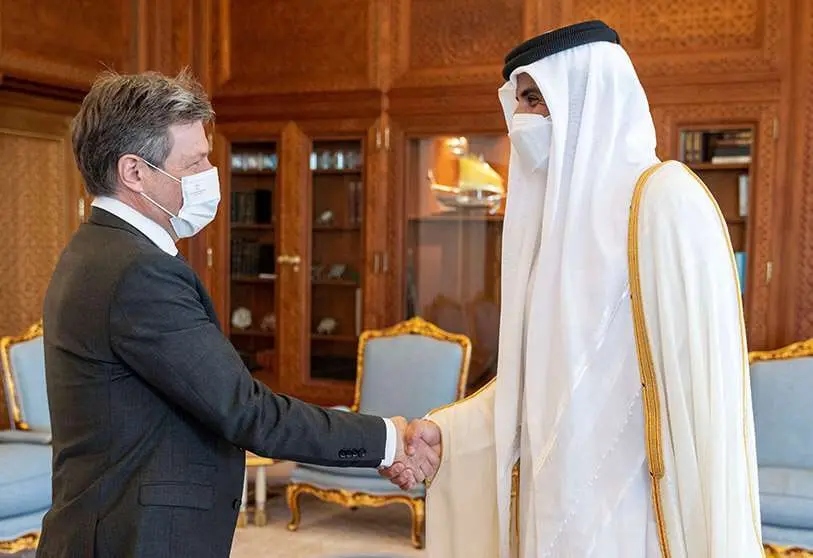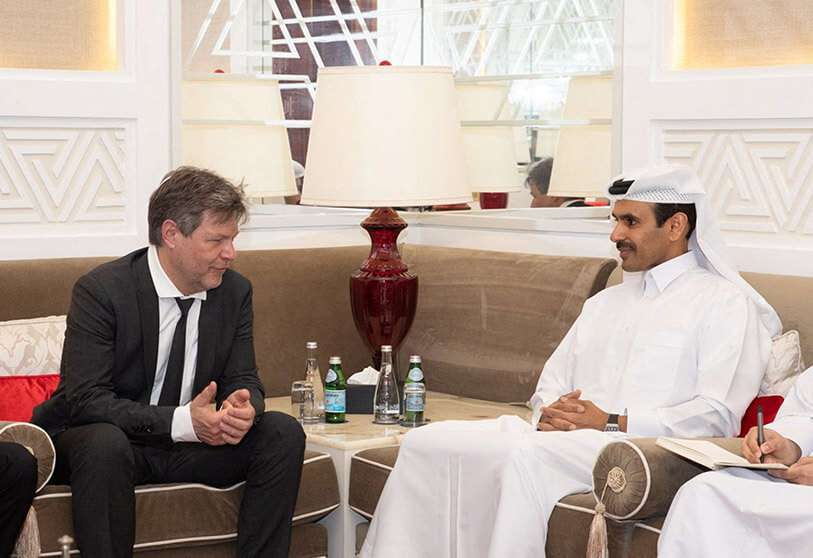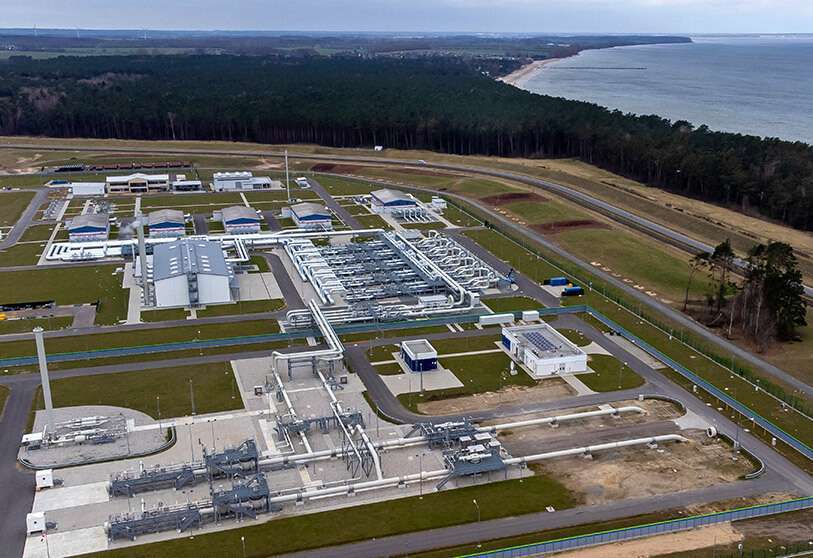Qatar positions itself as an alternative to Russian gas for Germany

Germany is looking for new energy markets that will allow it to wean itself off its heavy dependence on Russian gas. To achieve this goal, Germany's Minister of Economic Affairs, Robert Habeck, has embarked on a tour of some of the Gulf states. The first stop was Qatar, a major gas supplier.
In fact, the country owns the world's largest liquefied natural gas (LNG) company, Qatargas. Subsequently, Habeck will also travel to Abu Dhabi to look for new energy partners. The role of the Emirates in this respect is key, especially in the field of clean energy, as the Gulf country is developing green hydrogen.

During his stay in Doha, Habeck has reached a long-term energy partnership with the Emir of Qatar, Tamim bin Hamad al-Thani. "While we may still need Russian gas this year, we will not need it in the future. And this has only just begun. So whoever has ears, let him hear," the German minister said, according to Deutsche Welle.
Before the trip, Habeck warned on radio station Deutschlandfunk that if no more gas comes next winter and Russia cuts off supplies, "Germany would not have enough gas to heat all the houses and to keep all the industry going". Russian gas giant Gazprom supplies 55 % of Berlin's gas.

Habeck also met with his Qatari counterpart, Saad Sherida Al-Kaabi, with whom he discussed energy relations and cooperation between Doha and Berlin, according to a Qatari statement. The statement also said that Qatar had agreed with Germany that "their respective commercial entities would move forward in discussions on the long-term supply of LNG", as reported by Al-Jazeera. Doha has also claimed that it had been vigorously seeking to supply Berlin for years, but negotiations never led to concrete agreements.

However, the war in Ukraine has radically changed Germany's position. Olaf Scholz's government has recently announced plans to build two LNG terminals in Brunsbuttel and Wilhelmeshaven to reduce reliance on its pipelines, although they are unlikely to be ready before 2026, DW explains. Similarly, following the Russian invasion, Berlin suspended the certification process for the controversial Nord Stream 2 pipeline, which was intended to supply Russian gas to Germany via the Baltic Sea.

Qatari liquefied gas has become one of the main alternatives to Russian gas since the crisis with Moscow and the subsequent invasion of Ukraine began. The US has also been in talks with Doha to address energy supplies to Europe. Even President Joe Biden decided to name Qatar a 'major ally' outside NATO.
However, analysts have pointed out that Qatari gas is not enough to replace Russian gas, which accounts for more than 40% in Europe. Even Al-Kaabi himself admitted during February's gas conference that "no single country can compensate for this amount". Regarding LNG, Al-Kaabi revealed that this type of gas "is tied to long-term contracts, with very clear destinations." "Therefore, offsetting this amount in the short term is almost impossible," he added.

Even so, Qatar appears to have retracted these statements, looking for opportunities to expand commercially. As Andreas Craig, a professor at King's College London, told Al-Arab, "Now, whenever the opportunity presents itself, Qatar is looking to take advantage of it. They are promoting themselves as an extension of US foreign and security policy in a way that no other Gulf state does".
Recently, several media outlets have reported on a remarkable rift between Washington and Saudi Arabia and the United Arab Emirates. This rift is due, among other things, to Riyadh and Abu Dhabi's refusal to increase oil production, something that the US and Europe have called for. Both countries, on the contrary, reaffirm that they will maintain the agreements reached by OPEC+, an organisation of which Russia is a member.

The Biden administration is therefore "trying to present the war in Ukraine as an opportunity for Doha to expand energy sales to the West and strengthen its alliance with Washington", Al-Arab notes.










